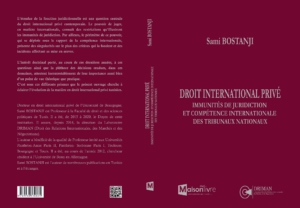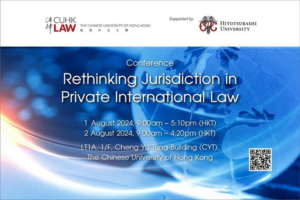Webinar Data protection and collective actions – 19 December
On 19th December 2025, from 10-12 CET, the European Civil Justice Centre hosts a webinar on Data protection and collective actions from a US, European and cross-border perspective.
The fast-paced development of digital technologies, and the massive, cross-border, global dimension of the processing of personal data in the Internet, have necessitated the collective enforcement of data protection rights.
This seminar delves into developments in European collective actions, mass violations of data subjects’ rights, and the use of collective actions for the protection of supra-individual and homogeneous interests in Europe and the US, and aspects of cross-border litigation.
The focus of the seminar will the research conducted by Marina Federico (Naples University) for her book Protezione dei dati personali e tutela collettiva published in 2024.
Registration for free on Eventbrite here.
Program
10.00 Xandra Kramer (Erasmus University Rotterdam/European Civil Justice Centre) – Opening and welcome
10.05 Stefaan Voet (KU Leuven/ European Civil Justice Centre) – Introduction: Developments in European collective redress
10.25 Marina Federico (University of Naples “Parthenope”) – Data protection and collective actions. Itineraries of legal comparison in Europe and the United States
11.00 Eduardo Silva de Freitas (TMC Asser Institute/Erasmus University Rotterdam) – An Apple a day won’t keep litigation away: private international law’s new path for collective data protection claims
11.15 Discussion, moderated by Stefaan Voet


 “Droit international privé – Immunités de juridiction et competence internationales des tribunaux tunisiens” (Private International Law – Jurisdictional Immunity and International Jurisdiction of Tunisian Courts) is the title of the long-awaited
“Droit international privé – Immunités de juridiction et competence internationales des tribunaux tunisiens” (Private International Law – Jurisdictional Immunity and International Jurisdiction of Tunisian Courts) is the title of the long-awaited 
